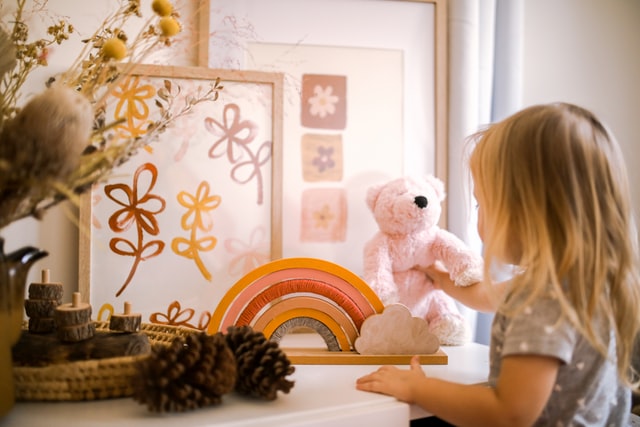How To Initiate Self-Care Habits With Children
Like adults, children reap enormous benefits from activities that entail purposeful and regular self-care. Even while we frequently think of self-care as something we should do when feeling anxious or unhappy, taking care of ourselves even when feeling fantastic is essential to maintaining that state of wellbeing. Teaching our children to care for themselves equips them with the knowledge and skills they will need to deal with stress and negative emotions healthily and productively as they progress through life. Self-care habits should be developed and nurtured together with your child; not only will they benefit from them, but it will also allow you to be at your best, which is essential for being an effective parent.
When partaking in self-care activities with your children, you do not have to worry about organizing something overly elaborate, time-consuming, or expensive. If they are any of these three, they may be increasing your stress levels, which is the polar opposite of self-care. The most important thing is that they are carried out consistently and regularly and never feel like a bother to you.
Another common misconception is that self-care consists of lighting candles, taking a bubble bath, indulging in our favorite meals, or receiving another reward or gift. To be sure, it can be that, but self-care is not about getting immediate gratification or treating yourself. Instead, it should focus on the long-term benefits to your mental and physical health rather than on anything immediately gratifying or transient.
Listed below are some self-care activities that you may conduct with your children to help them develop long-term healthy lifestyle habits.

Take good care of your body
Taking care of your body and your physical health is one of the most effective forms of self-care that you can engage in for yourself. It is also a reasonably simple task to complete. Physical activity is crucial, and this is something that you can do with your children that will be both entertaining and educational. Something as simple as a spontaneous dance around the kitchen while listening to loud music can get your blood pumping and endorphins – the feel-good hormones – floating around your body. It can be as simple as playing a game of football or basketball in the park or on the driveway or even going for a long walk in the hills on the weekend.
It is also essential to eat well. Experiment with new and exciting recipes that use healthy foods in the kitchen. See how many servings of fruits and vegetables you could fit into a single meal. Can you plan and create a three-course supper that is both super-healthy and delicious for the rest of the family? It promotes healthy eating habits and teaches valuable cooking skills, and it is a wonderful opportunity for families to spend some quality time together.
Participating in any mandatory health checkups is another task that is slightly less entertaining but equally as crucial as the previous one. This is the pinnacle of self-care: taking care of your body now to avoid future health problems further down the road. The following are just a few of the things you should be performing at least once a year, if not more frequently as necessary: dental exams, hearing tests, and vision exams. Explain to them the necessity of following through with treatment or something like glasses if they are prescribed one.
Get outside and enjoy the fresh air
Getting out into nature with your children not only provides you with sunshine and fresh air, but it also demonstrates to them how, when they are feeling stressed or burned out and in need of some self-care, changing the scenery can help them to relax and regain their equilibrium. Take a trip to the beach, go for a walk, or do some homework in the backyard with your family. Relax in the grass for a few minutes and stare up at the clouds with your children, then inquire as to what they observe. Nature and the outer world may be incredibly relaxing and valuable when one reconnects with these sources of comfort.
To be even more daring, go camping with your friends and build a fire around it, or take a road trip to someplace where you can spend some quality time with Mother Nature. Parent-child interactions like this provide fantastic opportunities for bonding, and studies have found that taking children on vacation provides families with pleasant experiences that help them establish long-term happiness and relationships.
Have some plain and straightforward fun
Sometimes we just need to be distracted away from the causes of stress we encounter in our daily lives, and research has shown that comedy and having a good time can help reduce stress levels. Take turns playing a fun board game, baking a cake together, solving Dowdle puzzles together, drawing on the sidewalk with chalk, watching a funny movie together, or building a couch fort and having a pillow fight. However, you must be present at the moment with your child and remain focused on what you are doing while you are doing this. Put your cell phone away and focus on how you feel and how they are having a good time. Keep these thoughts in your head for when you need a mental boost. Sharing a good laugh and having an excellent time together is a wonderful way to strengthen your relationship. It also allows you to find what kinds of things your child truly enjoys and teaches them how to take care of themselves later in life.
Make a difference in the lives of others
According to research, having unselfish sentiments and attitudes is associated with higher levels of wellbeing, health, and life expectancy. Essentially, doing good makes you feel fantastic and has long-term health advantages! Furthermore, teaching your children the value of kindness is a valuable life lesson that they will remember for the rest of their lives. Try volunteering for a local charity, asking your children to choose their old clothes to donate, or assisting a homeless shelter if you have the opportunity. Engage in a conversation with your children about how they feel about donating their time and effort to others.
You should also teach your children the importance of receiving praise. According to research, gratitude is associated with feelings of happiness and wellbeing, and you should emphasize to your children the importance of being thankful in our lives.


